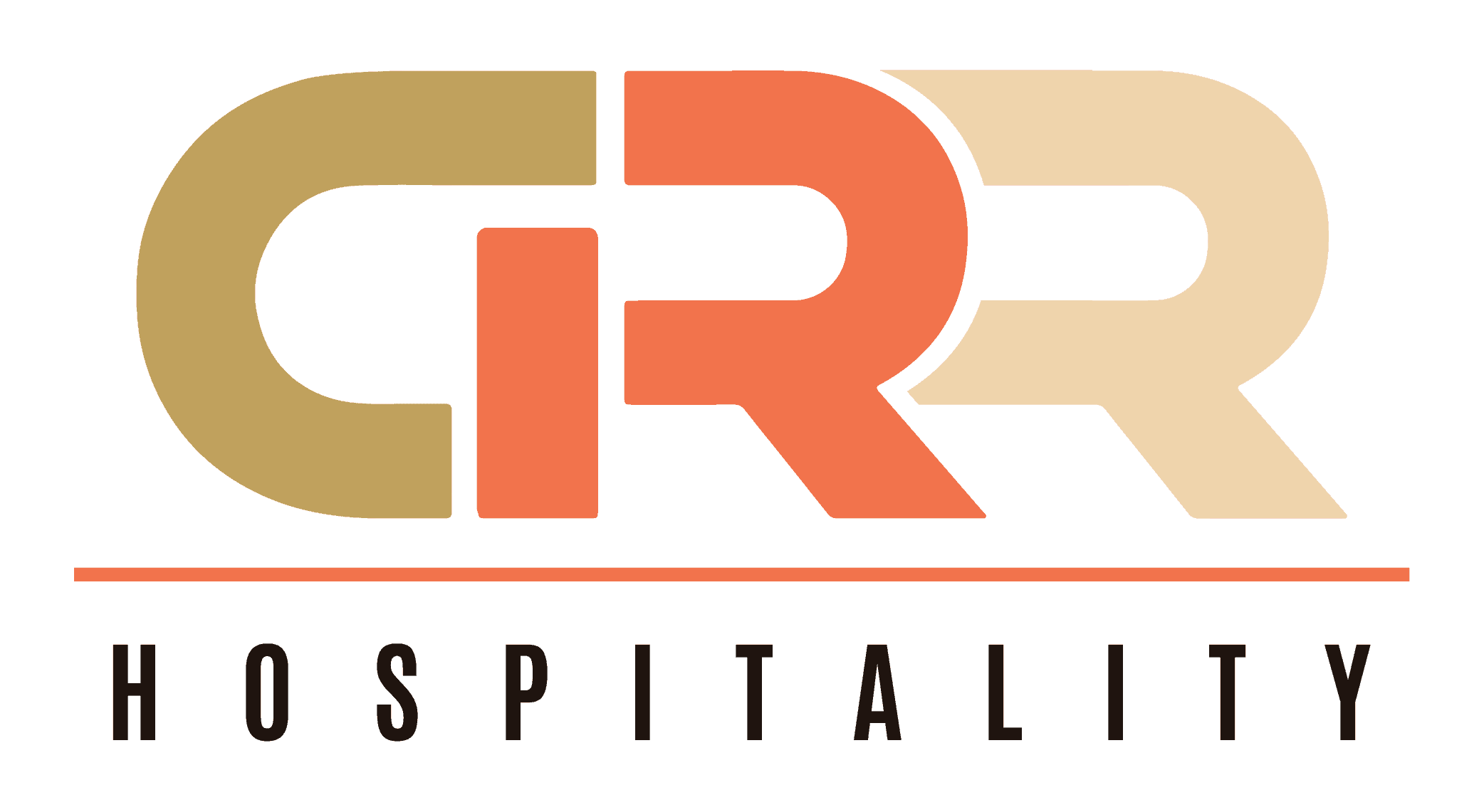Cash flow management is a critical aspect of any business, and this is especially true for those in the outdoor hospitality industry. Effective cash flow management involves monitoring and controlling the inflow and outflow of cash to maintain a positive cash flow, which is crucial for the financial health and sustained success of businesses in this sector.
Key Takeaways:
- Outdoor hospitality businesses must prioritize effective cash flow management strategies
- Implementing financial planning, forecasting, and analysis techniques can support cash flow optimization
- Technology can streamline cash flow management processes
- Long-term cash flow planning is essential for ongoing financial stability and success
- Strategies for negotiating payment terms, managing accounts receivable and payable, and revenue management are all critical for cash flow optimization
Understanding Cash Flow Management

Cash flow management is the process of monitoring and controlling the flow of cash in and out of a business to ensure a positive cash balance. Effective cash flow management is an essential component of financial management, particularly for outdoor hospitality businesses, which often have seasonal revenue patterns and fluctuating expenses.
To successfully manage cash flow, businesses need to understand the principle of inflow and outflow of cash. Inflows include revenue from sales, financing, and investments, while outflows include expenses such as salaries, inventory, and capital purchases. By tracking and managing these inflows and outflows, businesses can maintain a steady and stable cash flow.
There are various strategies for effective cash flow management in outdoor hospitality businesses, such as:
- Forecasting cash flow to ensure adequate cash reserves
- Managing accounts receivable to improve inflow of cash
- Negotiating payment terms with suppliers to control outflows
Another key component of cash flow management is accurate financial planning. This involves creating budgets, setting financial goals, and performing regular financial analyses to identify trends and potential issues that may impact cash flow.
Businesses can leverage technology tools such as financial management software and digital payment solutions to streamline cash flow management processes, enhance efficiency, and reduce manual errors.
Key principles for effective cash flow management in outdoor hospitality
The following key principles are critical for effective cash flow management in outdoor hospitality:
- Effective expense control: Controlling expenses is critical to maintaining a positive cash flow. Outdoor hospitality businesses must keep track of each expense and find ways to reduce costs without affecting the quality of service.
- Accurate record-keeping: Consistent and accurate record-keeping of cash inflows and outflows is essential for effective cash flow management. This enables businesses to assess their financial position and identify areas for improvement.
- Regular financial analysis: Performing regular financial analysis helps businesses to stay on top of their financial performance, make informed decisions, and take corrective actions to address potential issues.
By understanding these principles and implementing sound cash flow management practices, outdoor hospitality businesses can achieve financial stability and long-term success.
Optimizing Cash Flow in Outdoor Hospitality

Effective cash flow management is critical to the success of any business, and outdoor hospitality is no exception. To optimize their cash flow, businesses must implement specific strategies and tactics that maximize revenue and minimize expenses.
Effective Budgeting and Forecasting: One key strategy is to create and maintain a realistic budget that accurately reflects revenue and expenses. This can be achieved through regular forecasting, which enables businesses to anticipate future cash flow needs and adjust their budget accordingly. By staying on top of their finances in this way, businesses can avoid negative cash flow, minimize debt, and maintain a healthy financial position.
| Benefits of Effective Budgeting and Forecasting: | Challenges of Ineffective Budgeting and Forecasting: |
|---|---|
| • Maintaining a positive cash flow | • Underestimating expenses or overestimating revenue, leading to negative cash flow |
| • Identifying potential financial gaps before they happen | • Lack of financial transparency |
| • Improved decision-making through informed financial analysis | • Poor allocation of resources |
Revenue Management: Another tactic for optimizing cash flow is to focus on revenue management. This includes monitoring and adjusting pricing strategies to ensure maximum profitability, ensuring efficient use of resources to minimize waste, and exploring new revenue streams. By optimizing revenue management, businesses can increase revenue and maintain a steady cash flow.
Expense Tracking: Finally, effective expense tracking is essential for reducing unnecessary spending and maintaining a positive cash flow. By regularly monitoring and analyzing expenses, businesses can identify opportunities for cost savings, negotiate better rates with suppliers, and improve overall financial efficiency.
In conclusion, optimizing cash flow in outdoor hospitality requires a combination of effective budgeting and forecasting, revenue management, and expense tracking. By implementing these strategies and tactics, businesses can ensure a healthy financial position and long-term success in the industry.
Analyzing Cash Flow Patterns

Regular cash flow analysis is essential for the financial well-being of outdoor hospitality businesses. By analyzing cash flow patterns, businesses can identify areas of overspending or delayed payments and implement targeted solutions to rectify these issues.
The process of cash flow analysis involves reviewing and organizing financial data, including income and expenses, accounts payable and receivable, and cash balances. This data is then used to generate reports that provide insights into the health of the business’s cash flow.
Businesses can use a variety of tools to perform cash flow analysis, including spreadsheet software, accounting software, and financial management apps. These tools allow businesses to track and categorize financial data, identify trends in cash flow, and project future cash flow needs.
By conducting regular cash flow analysis, outdoor hospitality businesses can better manage their finances, make informed financial decisions, and avoid cash flow issues that can negatively impact their bottom line.
Financial Planning for Cash Flow Management

In order to effectively manage cash flow in outdoor hospitality, it is crucial to engage in comprehensive financial planning. This involves a number of steps designed to align financial goals and objectives with business operations and revenue streams.
The first step is to establish a budget that takes into account all expenses and income streams, including fixed costs such as rent and variable costs such as labor and supplies. Once a budget has been established, it is important to regularly review and update it based on changing circumstances and market conditions to ensure that it remains viable and effective.
Another key component of financial planning is contingency planning, which involves creating a strategy for dealing with unexpected events that can impact cash flow. This can include developing plans for dealing with emergencies such as natural disasters or sudden economic downturns, as well as building up reserves to cover unexpected expenses or dips in revenue.
Risk management is another important aspect of financial planning for cash flow management. This involves identifying potential risks to business operations and developing strategies for mitigating or avoiding those risks. For example, businesses may diversify their revenue streams to avoid over-reliance on a single product or service, or invest in technology or infrastructure to reduce the risk of costly downtime or disruptions.
| Financial planning steps for cash flow management in outdoor hospitality: |
|---|
| Establishing a comprehensive budget that includes all expenses and income streams, both fixed and variable |
| Engaging in regular review and updating of the budget based on changing circumstances and market conditions |
| Developing contingency plans for dealing with unexpected events that can impact cash flow |
| Identifying potential risks to business operations and developing strategies for mitigating or avoiding those risks |
A comprehensive financial plan is critical to the success of cash flow management in outdoor hospitality. By engaging in careful budgeting, contingency planning, and risk management, businesses can improve their financial health and maximize their chances of long-term success.
Strategies for Cash Flow Optimization
Optimizing cash flow is key to the financial health of businesses in outdoor hospitality. To achieve this, businesses can implement a range of strategies that focus on increasing revenue and reducing expenses. These strategies include:
Managing Accounts Receivable and Payable
To optimize cash flow, businesses need to keep a close eye on their accounts receivable and payable. This involves tracking invoices, following up with customers who have outstanding balances, and negotiating favorable payment terms with suppliers. By doing so, businesses can ensure that they receive payments promptly and minimize the risk of late payments that disrupt their cash flow.
Controlling Inventory
Excessive inventory can tie up cash and constrain a business’s ability to generate revenue. To optimize cash flow, businesses need to maintain an optimal level of inventory that maximizes their revenue potential without tying up excess capital.
Focusing on Revenue Management
Effective revenue management strategies can help outdoor hospitality businesses optimize their cash flow. Examples include using dynamic pricing to adjust prices in response to demand, implementing yield management techniques to fill unsold inventory, and cross-selling additional services to increase revenue per customer.
Reducing Operating Costs
Reducing operating costs is another effective strategy for cash flow optimization. This involves reviewing all expenses and identifying opportunities to cut unnecessary costs, negotiating with vendors for better prices, and employing eco-friendly technology solutions to reduce energy costs.
Forecasting and Budgeting
Regular forecasting and budgeting are crucial for cash flow management. By forecasting revenue and expenses, businesses can anticipate cash flow issues and plan accordingly. It’s also important to create a comprehensive budget that aligns with the goals and objectives of the business.
By implementing these strategies for cash flow optimization, businesses in outdoor hospitality can improve their financial health and achieve sustained success.
Leveraging Technology for Cash Flow Management
Outdoor hospitality businesses can benefit greatly from incorporating technology into their cash flow management processes. With the right tools and systems in place, businesses can streamline their financial operations and improve efficiency. Financial management software is one such tool that can provide businesses with an integrated platform for managing cash flow, accounting, and billing. This can help reduce errors and save time by automating many of the manual tasks associated with financial management.
Another way technology can help optimize cash flow in outdoor hospitality is through the use of digital payment solutions. By implementing a secure online payment gateway, businesses can offer customers a convenient and flexible way to make payments and receive funds. This can expedite payment processing and help improve cash flow by minimizing delays and reducing the risk of errors or disputes.
The Role of Mobile Payments in Outdoor Hospitality
Mobile payment solutions are also gaining popularity in the outdoor hospitality industry. By enabling on-the-go payment processing, mobile payment apps can provide businesses with greater flexibility and convenience. For example, food trucks and vendors at outdoor events can use mobile payment apps to accept payments from customers on the spot, without needing to rely on traditional POS systems or cash handling.
Incorporating technology into cash flow management can also offer businesses greater visibility and control over their finances. By leveraging analytics tools and dashboards, businesses can gain insights into revenue and expense trends, and track key performance indicators. This can help businesses make data-driven decisions and identify areas for potential optimization or improvement.
“In today’s fast-paced business environment, technology can be a game-changer for cash flow management. By embracing digital tools and solutions, outdoor hospitality businesses can improve efficiency, reduce errors, and enhance the customer experience while gaining greater control over their finances.”
Long-Term Cash Flow Planning and Forecasting
Outdoor hospitality businesses must have a long-term cash flow plan that enables them to achieve their goals and objectives. One key strategy for achieving financial success is to create realistic budgets that take into account all expenses, including payroll, inventory, and operating costs. With well-planned budgets in place, businesses can make informed decisions about their finances and control their cash flow with greater ease.
In addition to budgeting, forecasting techniques can help businesses predict future cash flows and identify potential issues before they become problematic. By using data analysis and market trends, businesses can make informed decisions about investments, expansion, and other financial decisions that impact their long-term success.
Another essential aspect of long-term cash flow planning is setting achievable goals and objectives. This requires a thorough understanding of the business’s financial situation, market conditions, and growth potential. With clear goals and objectives, businesses can focus on the strategies and tactics that will help them achieve success over the long term.
Overall, long-term cash flow planning and forecasting is an essential aspect of financial management for outdoor hospitality businesses. By creating realistic budgets, using forecasting techniques, and setting achievable goals, businesses can take control of their finances and build a sustainable and successful future.
Conclusion
Effective cash flow management is critical for the success of businesses in outdoor hospitality. By keeping a close eye on their inflow and outflow of money, businesses can ensure that they have enough cash on hand to cover their expenses and invest in growth opportunities.
From understanding cash flow management principles to optimizing cash flow through budgeting and forecasting, there are numerous strategies that outdoor hospitality businesses can use to improve their financial health. Analyzing cash flow patterns, leveraging technology, and implementing contingency planning are also important steps in maintaining positive cash flow.
By implementing these cash flow management strategies, outdoor hospitality businesses can minimize financial risks and maximize their long-term success. As the outdoor hospitality industry continues to grow and evolve, effective cash flow management will become an even more important factor in achieving sustainable profitability and growth.
Business owners and managers in outdoor hospitality must prioritize cash flow management as an ongoing process to ensure their business remains solvent and profitable in the long term.
By implementing these cash flow management strategies, outdoor hospitality businesses can minimize financial risks and maximize their long-term success. As the outdoor hospitality industry continues to grow and evolve, effective cash flow management will become an even more important factor in achieving sustainable profitability and growth.
Therefore, outdoor hospitality businesses must adopt effective cash flow management practices and strategies to remain competitive and successful in the industry.
FAQ
What is cash flow management in outdoor hospitality?
Cash flow management in outdoor hospitality refers to the practice of monitoring and controlling the inflow and outflow of money to ensure a positive cash flow. It involves effectively managing revenue, expenses, and financial planning to maintain the financial health and sustained success of businesses in the outdoor hospitality industry.
Why is cash flow management important for businesses in outdoor hospitality?
Cash flow management is crucial for businesses in outdoor hospitality as it helps maintain a steady flow of money, ensures financial stability, and allows businesses to meet their financial obligations. It enables effective budgeting and forecasting, facilitates strategic decision-making, and helps businesses navigate potential cash flow challenges.
What are some key principles and strategies for effective cash flow management in outdoor hospitality?
Effective cash flow management in outdoor hospitality involves principles such as maintaining accurate and up-to-date financial records, monitoring and controlling expenses, optimizing revenue, and actively managing accounts receivable and payable. It also includes strategies like budgeting and forecasting, revenue management, expense tracking, and cash flow analysis to optimize cash flow.
How can businesses in outdoor hospitality optimize their cash flow?
Businesses in outdoor hospitality can optimize their cash flow by implementing strategies such as effective budgeting and forecasting, revenue management techniques, and expense tracking. They can also negotiate favorable payment terms with suppliers, manage accounts receivable and payable efficiently, and minimize unnecessary expenses to improve cash flow.
What is cash flow analysis in outdoor hospitality?
Cash flow analysis in outdoor hospitality involves analyzing the patterns and trends of cash flow within a business. It helps identify potential cash flow problems, assess the impact of business decisions on cash flow, and make informed financial management decisions. Cash flow analysis is essential for maintaining a healthy cash flow and making proactive adjustments as needed.
How can businesses engage in financial planning for effective cash flow management?
Businesses can engage in financial planning for effective cash flow management by creating comprehensive financial plans that align with their goals and objectives. This includes setting realistic budgets, developing contingency plans, and implementing risk management strategies. Financial planning provides a roadmap for businesses to achieve their financial targets and manage cash flow effectively.
What are some strategies for optimizing cash flow in outdoor hospitality?
Businesses in outdoor hospitality can optimize their cash flow by managing accounts receivable and payable efficiently, negotiating favorable payment terms with suppliers, implementing effective inventory management practices, and reducing unnecessary expenses. Employing revenue management techniques and utilizing technology for streamlined cash flow processes are also effective strategies.
How can businesses leverage technology for cash flow management in outdoor hospitality?
Businesses in outdoor hospitality can leverage technology for cash flow management by using financial management software to track and analyze cash flow, implementing digital payment solutions to streamline transactions, and utilizing other technological tools for efficient financial processes. Technology can help automate tasks, improve accuracy, and enhance overall cash flow management.
Why is long-term cash flow planning and forecasting important for outdoor hospitality businesses?
Long-term cash flow planning and forecasting are important for outdoor hospitality businesses as they provide a strategic outlook of future revenue and expenses. Businesses can create realistic budgets, set achievable financial goals, and make informed decisions based on the forecasting data. Long-term planning and forecasting aid in proactive cash flow management and help identify trends and potential challenges.
How can businesses ensure the financial health and sustained success in outdoor hospitality through cash flow management?
Businesses can ensure the financial health and sustained success in outdoor hospitality through effective cash flow management. By monitoring and controlling cash flow, implementing strategic planning and budgeting, analyzing cash flow patterns, and optimizing revenue and expenses, businesses can maintain a positive cash flow, meet their financial obligations, and achieve long-term growth and profitability.





